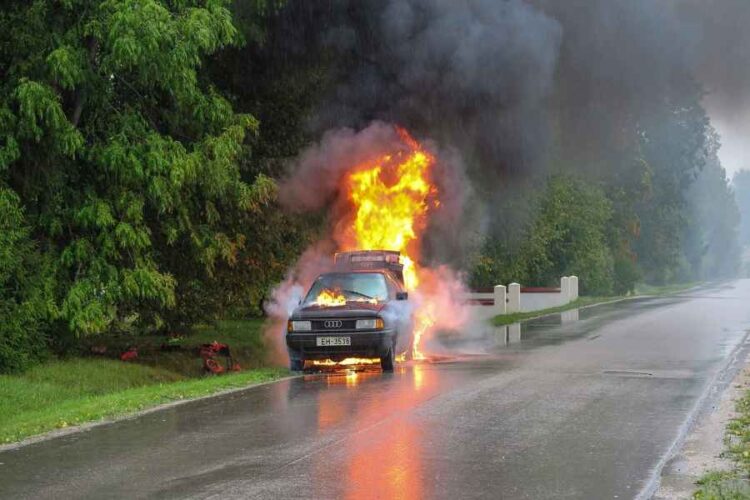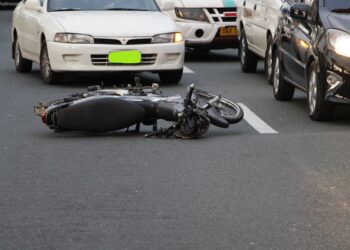Car accidents shake up your world in an instant. You’re driving down the street one second, and the next, you’re dealing with injuries, damages, and paperwork. Insurance companies might act like they’re on your side, but their real goal is to pay as little as possible. Getting shortchanged on a settlement isn’t just frustrating—it can leave you fraught to cover medical expenses, lost income, and repair bills. Knowing how to approach the claims process will help you secure the compensation you deserve.
Understanding your rights is the first step. Insurance adjusters often sound friendly, but their job is to save the company money. Accepting a low offer too soon could mean giving up money needed for long-term recovery. If you contact a personal injury lawyer in Los Angeles for your car accident case, you’ll have someone fighting to make sure the final amount actually reflects the impact of your injuries. When you know what tactics to watch for, you can avoid getting tricked into settling for less than you should.
Report the Accident Immediately
Leaving the scene without calling the authorities can come back to haunt you. A police report is an official record, which can be a game-changer when proving fault. Officers document details you might miss, including road conditions, witness statements, and possible violations. That paperwork helps counter any attempt by an insurer to shift blame onto you.
Getting medical attention immediately isn’t just about staying healthy—it strengthens your claim. Insurance companies love to argue that injuries aren’t serious if there’s a delay in treatment. Even if you feel fine, hidden problems like whiplash or internal damage might not show symptoms immediately. A doctor’s evaluation provides medical records that link injuries directly to the crash, leaving little room for insurers to dispute the severity of your condition.
Watch Out for Insurance Traps
An adjuster’s job isn’t to help you—it’s to protect the company’s bottom line. One common trick is rushing you to accept an offer before fully understanding your injuries’ extent. They may suggest that early settlements are in your best interest, but that first offer is usually way below what you need.
Another trap? Asking for a recorded statement. They’ll say it’s just part of the process, but those statements can be twisted against you later. Something as simple as saying, “I’m feeling better,” can be used to argue that your injuries aren’t serious. You’re not legally required to give a recorded statement without legal representation, so politely decline until you’ve spoken with someone who knows how to protect your interests.
Gather Solid Evidence
Strong evidence makes all the difference in a car accident claim. Photos taken at the scene show the severity of the crash, road conditions, and vehicle damage. Capturing multiple angles ensures no important detail is missed. If there were witnesses, get their contact information. Keeping all receipts and medical records is just as important. Every doctor visit, prescription, and therapy session should be documented. The more proof you have of your expenses, the harder it is for an insurance company to argue that you’re asking for too much. If you’ve had to miss work, paycheck stubs or employer statements help calculate lost wages, ensuring every dollar you owe is accounted for.
Know When to Push Back
Lowball offers aren’t just possible—they’re expected. Insurance companies count on claimants getting frustrated and settling for less than they deserve. The first offer is rarely the best one. Rejecting it doesn’t mean you won’t get paid; it means you’re serious about getting fair compensation. A counteroffer backed by medical bills, repair estimates, and lost wage calculations shows you’re not accepting less without a fight.
If negotiations stall, having an attorney in your corner changes everything. Insurers take cases more seriously when they see legal representation involved. An attorney’s knowledge of California personal injury laws ensures that every angle of your claim is handled correctly, increasing the likelihood of a payout that actually covers your losses.
Final Thoughts: Get What You Deserve
Dealing with a car crash claim in LA can be frustrating, but accepting an inadequate settlement doesn’t have to be part of the experience. Insurance companies want to protect their profits—you must protect your future. Taking the proper steps, avoiding common traps, and standing firm against low offers will put you in the best position to recover what you’re owed. Don’t let an adjuster decide what your injuries are worth. Demand fair compensation, and don’t stop until you get it









